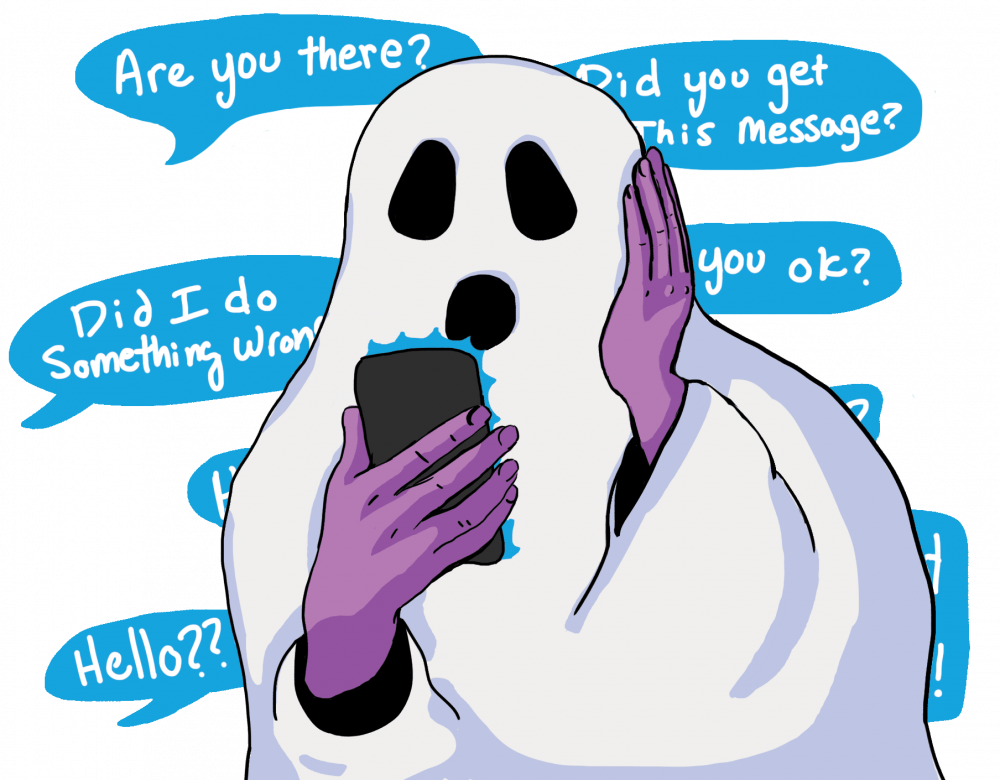Around early September of 2017, I probably had about $9.36 in my checking account at one point. I had gotten divorced that previous spring, and I was literally, at times, going to the bar by my house and getting bartenders to essentially comp me a meal and a beer just to get through some weekends. It was tough. I was making some money here and there doing one-off writing projects, and I was in 2-3 longer-term job conversations, so I had hope … but the day-to-day was tough, absolutely.
It was also hard not to be angry about the state of recruiting. You’d get an InMail or something from a seemingly big, cool company and you’d set up a time … and then the recruiter would ghost you. I wrote a little about the concept of “ghosting” as a result. And yes, before we get too far, I know it goes both ways. I know candidates ghost too. That’s also unprofessional.
So I had to exert a lot of mental energy in fall 2017 to not be angry all the time about how hiring and job search stuff works. Thankfully I got through some of that, actually meeting my girlfriend in the process, and I made it to a pretty decent 2018 in terms of income. It was hard, and some Saturday afternoons I wondered what would become of me, but I got there.
So now flash forward to about 27 months later. I have resources and all that, and I get work here and there, but I’m basically broke now too … and after four-five years of mostly being solo work-wise, I’m fine to take a more full-time, W-2-style thing for some consistency and stability.
Now what’s the consistent overlap between “now” and “then?”
Recruiters still ghost.
In the past week, I’ve had two recruiters — from big-name companies, too, like Fortune 500 stuff — “ghost” me. One guy, from eBay (I’ll name names!), did it twice in the span of 34 hours.
At the same time this was happening, my friend in north Dallas, who has three school-aged children and thus a lot to juggle, was maybe 1 minute and 30 seconds late to a Zoom interview. The recruiter instantly dismissed him as “not engaged in the opening enough” or something.
I know there will always be double standards and two-faced moves, especially in something as subjective as evaluating another human — and especially when the point of recruiting is typically to whittle down a list, not make the list more robust.
But I just find this so unprofessional. There are passive candidates, sure — which means they have salaried income as they’re applying. But a lot of these people that recruiters are ghosting may have no real income at the moment they’re being ghosted.
If you believe recruiting is a “people-driven industry,” which many recruiters do often say … then you need to be fair to people and treat them like human beings. That means showing up for the calls.
I realize that you get busy, and urgent projects arise, and I realize that maybe at the last second you looked at a resume and saw the person would never be a fit for whatever reason, but … if you have a call set up, just get on the call, work through it in about 10 minutes, and then be gone. Send the generic, automated rejection a few days later.
That approach is at least professional, if still lame. The ghosting approach is entirely unprofessional.
Now, are there really economic outcomes? Will I stop using the brands that ghost me? Maybe and maybe not. But in my mind, this is more about the underlying humanity of the hiring process, and about how we ultimately perceive HR and recruitment as a function. If people are doing this to us, why would we ever trust in the function? Why wouldn’t we just try to run around the function as much as possible through networking/referral?
AI and machine learning are already making recruiting semi-irrelevant at many companies. If humans don’t want to engage with recruiters anymore because of how recruiters treat us, it’s going to be a massive elevator drop to the bottom of that profession. Bye bye, Randy Recruiter The Ghost Machine. Hello Hal The Automated Screener.
Honestly, though, if you’re in recruiting, just be more professional. That’s all I ask. And I know that us, as candidates, could be as well. It’s a two-way street, and we should both respect that.

Very well said. The moment the recruiter makes a personal assumption and decision based on their own ego and bias, the value of said recruiter is gone. There is no respect. Employers are slow to comprehend this. They literally have no idea how many amazing candidates are thrown away. AI can help eliminate these biases but the programming behind the AI can be biased as well. If we could get to a blockchain start in the recruiting process, change will happen.
I concur. As disappointing as it is to be told you’re not a fit for the position, it’s worse to not know. It takes all of about 30 seconds to write a “Thanks, but no thanks” email. It’s appalling how many recruiters and hiring managers can’t be bothered to do it.